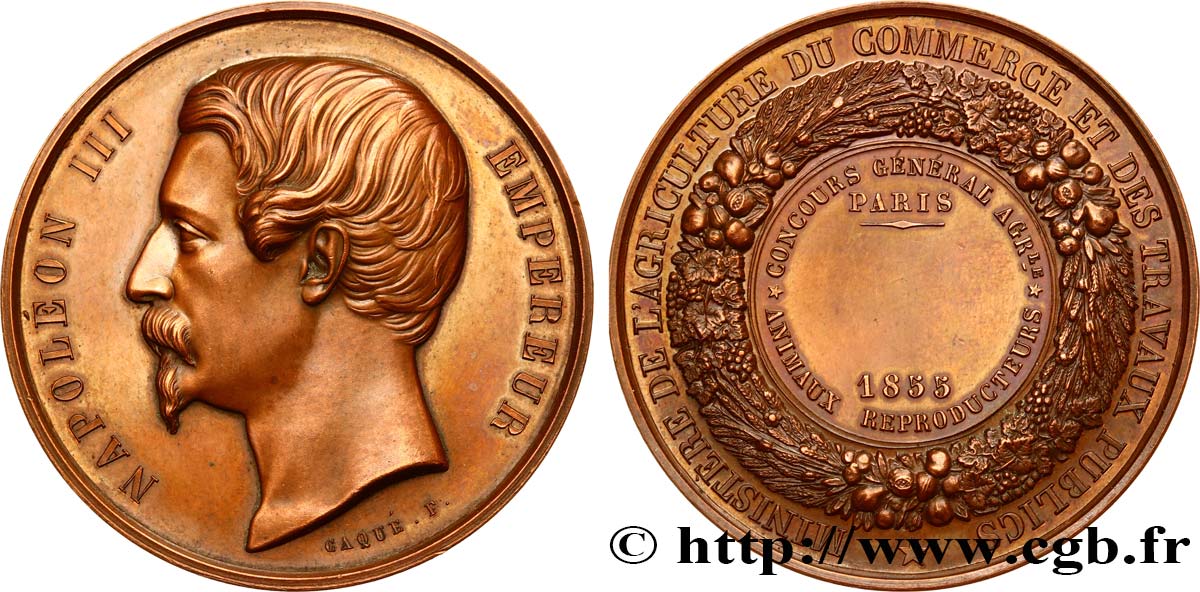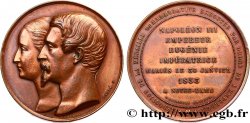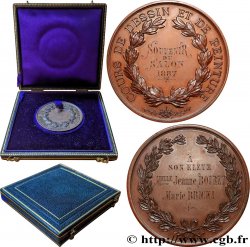Live auction - fme_481652 - SECOND EMPIRE Médaille, Concours général agricole, animaux reproducteurs
You must signin and be an approved bidder to bid, LOGIN TO BID. Accounts are subject to approval and the approval process takes place within 48 hours. Do not wait until the day a sale closes to register. Clicking on "BID" constitutes acceptance of the terms of use of cgb.fr private live auctions.
Bids must be placed in whole Euro amounts only. The sale will start closing at the time stated on the item description; any bids received at the site after the closing time will not be executed. Transmission times may vary and bids could be rejected if you wait until the last second. For further information check the Live auction FAQ
All winning bids are subject to a 18% buyer’s fee.
All winning bids are subject to a 18% buyer’s fee.
| Estimate : | 120 € |
| Price : | no bid |
| Maximum bid : | no bid |
| End of the sale : | 14 November 2023 16:27:32 |
Type : Médaille, Concours général agricole, animaux reproducteurs
Date: 1855
Mint name / Town : 75 - Paris
Metal : copper
Diameter : 50 mm
Orientation dies : 12 h.
Engraver CAQUÉ Armand Auguste (1795-1881)
Weight : 62,5 g.
Edge : lisse + main CUIVRE
Puncheon : main indicatrice (1845-1860) et CUIVRE
Coments on the condition:
Patine marron avec une légère usure sur les points hauts
Obverse
Obverse legend : NAPOLÉON III - EMPEREUR.
Obverse description : Tête nue de Napoléon III à gauche; signé : CAQUE F..
Reverse
Reverse legend : MINISTÈRE DE L’AGRICULTURE DU COMMERCE ET DES TRAVAUX PUBLICS */ *CONCOURS GENERAL AGRLE* ANIMAUX REPRODUCTEURS / PARIS / 1855.
Reverse description : Couronne de céréales et de fruits ; légende à l’intérieur et à l’extérieur.
Commentary
Initié en 1843 avec le concours de Poissy, le Concours Général Agricole a été créé en 1870 pour sélectionner et primer les meilleurs produits du terroir français et animaux reproducteurs. Il est co-propriété du Ministère de l’Agriculture et de l’Alimentation et du CENECA.








 Report a mistake
Report a mistake Print the page
Print the page Share my selection
Share my selection Ask a question
Ask a question Consign / sell
Consign / sell
 Full data
Full data















